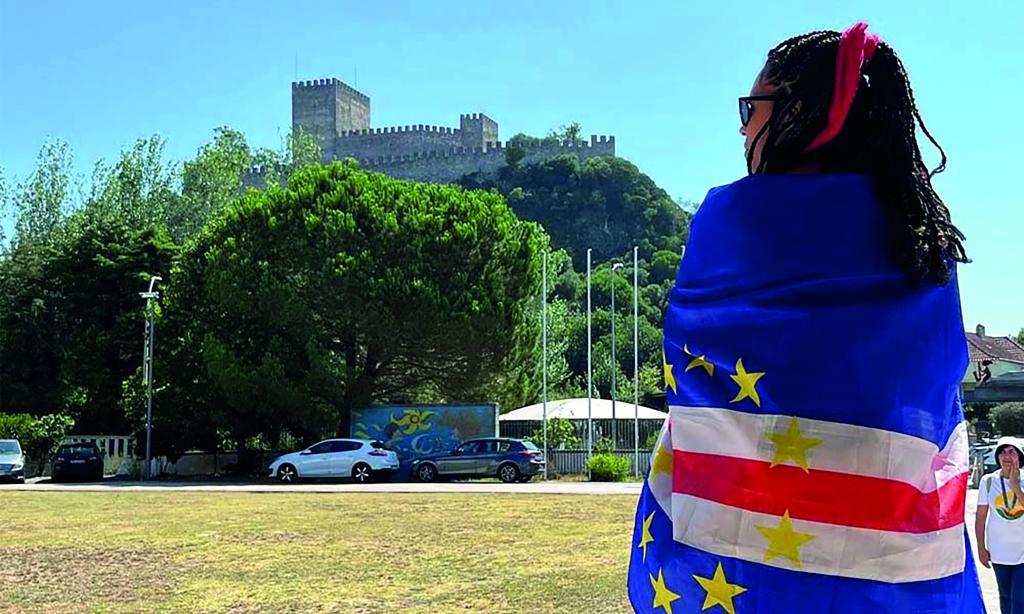By disângela Tavares,
Africa-Press – Cape verde. In recent years, a growing number of Cape Verdeans have emigrated to Portugal in search of better living conditions. However, many face unexpected difficulties, ranging from the high cost of living to labor exploitation and the uncertainty of being in an irregular situation.
Carlos, 32, arrived in Lisbon eight months ago. Without documents allowing him to work legally, he has taken on informal jobs in construction and warehouses.
“The boss says he’ll pay at the end of the week, but sometimes he doesn’t. If I complain, he threatens to call the police, knowing that I’m undocumented. But what can I do? I need to eat and pay bills. Here, no one cares about our needs; they just take advantage of our vulnerability. I have colleagues who have worked an entire month and, in the end, didn’t receive anything. Without a contract, we can’t even file a complaint. All I can do is accept whatever comes and keep looking for something better. It’s not easy to live like this, but I have to keep going because returning to Cape Verde with nothing is not an option.”
Like Carlos, many Cape Verdeans arriving in Portugal end up depending on family members for a place to stay.
“There’s no other option. The minimum wage here isn’t enough to pay rent alone,” says Keila, who shares a small apartment in Amadora with six other people. “We all work, but it’s the only way we can cover expenses. And even then, it’s hard. Some days, there’s not enough money even for food, and prices just keep rising. Every month is a battle to hold onto the little we have, but giving up is not in our plans.”
Work Contracts
Ivanildo left Cape Verde convinced by his brother that Portugal would be the solution for a better life. Before leaving, he had already started building his own house and had a life with his wife and two daughters. To obtain a visa, he needed a work contract sent by his brother. Upon arriving in Portugal, he was forced to work to pay off the debt for the work contract. Now, earning minimum wage, with that debt and other expenses, he has no money left to rent a room or support his family in Cape Verde.
Unable to afford a room, Ivanildo sleeps on the balcony of his brother’s room, enduring the harsh winter. The brother who took him in lives with his partner, making the space even tighter and the atmosphere tense.
“I never thought I’d end up living like this—out in the open, on someone’s balcony, with only a thin blanket. But I can’t complain because, without him, I wouldn’t even have a place to stay. There’s no privacy for anyone, we’re always in conflict, and the only thing that remains here is silence. It was my dream to emigrate to Europe. I knew it would be hard, but I never imagined my own blood would turn their back on me. Europe makes us lonely—without family, without friends. Here, we have no one to ask for help or to turn to.”
Family Pressure and Fear of Failure
Returning to Cape Verde is not an easy option for many migrants, who feel trapped between the harsh reality they face in Portugal and their family’s expectations back home.
“My family back home thinks I’m doing well, but in reality, I barely have enough to eat. I’m ashamed to tell them the truth. I don’t want to go back empty-handed. Any Cape Verdean who leaves their country in search of a better life fears returning and being seen as a failure, while family pressure only increases. They say that if I come back with nothing, they’ll see me as someone who wasted an opportunity—as if making money here were easy. But how can I keep going like this? We work endless hours, often without contracts, without guarantees, taking any job just to survive. And in the end, what’s left? Just enough to pay debts and try not to go hungry. When I think about going back, I remember what I left behind—my wife, my daughters, the house I started building. And I feel like I failed. But at the same time, I feel like I’m losing myself here, in a life without security, without comfort, without a clear future.”
Struggle for Survival
The high cost of living has led many to seek precarious alternatives, such as occupying land and building makeshift shelters on the outskirts of Lisbon.
“I never thought I’d come to Portugal and end up living in a shack,” laments Luís Monteiro. “But when I arrived, I saw that paying for a room was already a luxury. Now I live in an improvised structure with three friends. At least we’re not sleeping on the streets.”
But not everyone is so lucky. Some end up sleeping in train stations or under bridges.
“I arrived four months ago and still haven’t found a steady job. I do odd jobs here and there, but it’s not enough to pay for a room. At night, I sleep at a train station. It’s dangerous, but I have no choice,” says David Silva.
Despite the challenges, many still dream of a better life.
“I came with hope for a dignified future. I know it’s hard now, but I believe I’ll be able to legalize my situation and find a stable job,” says Joana.
The Reality of Immigration: Challenges and Opportunities
For Mike Bento, a social activist and supporter of the “Fair Life Movement” – which advocates for immigrants’ rights in Portugal – the immigration experience varies depending on individual circumstances, but many Cape Verdeans face common challenges.
“I understand that immigration is a complex issue and that each person has their own perspective. I’ve been in Portugal for five years, and what I’ve noticed is that emigrating can be a great opportunity for those willing to fight, sacrifice, and build their life. On the other hand, it can be challenging for those who lack determination, who just seek entertainment on weekends, and who don’t take responsibility.”
According to Mike Bento, the difficulties for immigrants have increased significantly in recent years, making the process even tougher.
“Five to ten years ago, it might have been easier to come to Portugal. The cost of living was lower, rents were more affordable, and opportunities seemed more promising. Now, the challenges are many—problems in healthcare, transportation, employment, residency documentation, and housing. I wouldn’t advise anyone to leave their home, family, and job without proper conditions or concrete promises of good employment and a place to stay. It’s a huge risk.”
The activist also highlights a structural issue affecting both Portugal and Cape Verde: the loss of skilled labor.
“Portugal needs to create better conditions in areas such as healthcare, transportation, housing, and issuing residency documents. However, I also believe our home country should create conditions that encourage people to stay in Cape Verde.”
Many immigrants arrive in Portugal with the goal of studying, but financial difficulties often force them to drop out and enter the workforce.
“Not everyone who comes manages to achieve the life they imagined. Reality can be harsh, and the daily struggle exhausting. It takes preparation, determination, and, above all, awareness of what one is facing when emigrating.”
Source: expressodasilhas.
For More News And Analysis About Cape verde Follow Africa-Press






